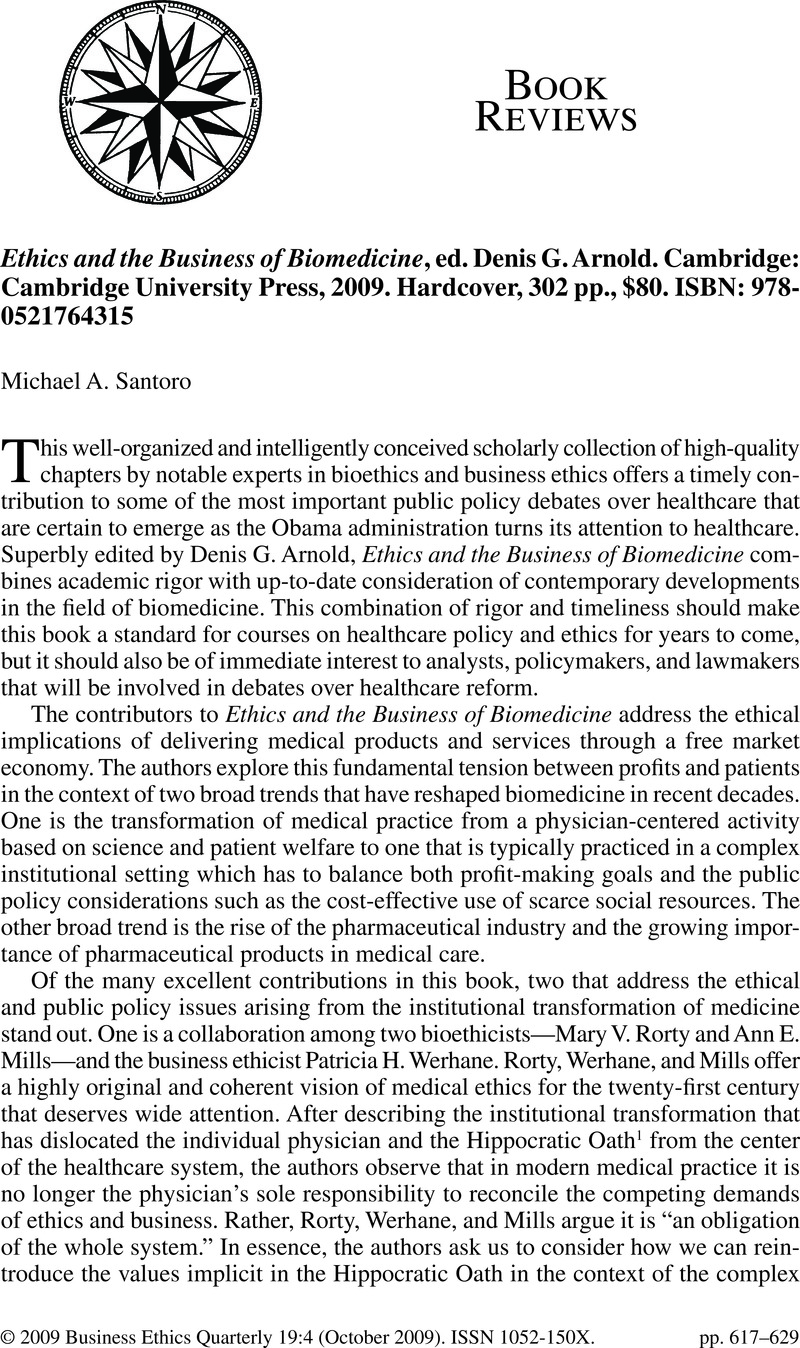No CrossRef data available.
Published online by Cambridge University Press: 23 January 2015

1. The Hippocratic Oath was traditionally taken by physicians to guide the ethical practice of medicine. Hippocrates, the father of Western medicine, is said to be the creator of the oath. In modern medical education in the United States and Canada, the oath has been updated from its original format and modified to fit contemporary mores. According to one survey of 150 U.S. and Canadian medical schools, only 14 percent of modern oaths prohibit euthanasia, 11 percent invoke a deity, 8 percent foreswear abortion, and only 3 percent forbid sexual contact with patients. See Orr, R. D., Pang, N., Pellegrino, E. D., and Siegler, M., “Use of the Hippocratic Oath: A Review of Twentieth Century Practice and a Content Analysis of Oaths Administered in Medical Schools in the U.S. and Canada in 1993,” The Journal of Clinical Ethics 8(4) (1997): 377–88.Google Scholar
2. See, generally, Ethics and the Pharmaceutical Industry, ed. Michael, A. Santoro and Thomas, M. Gorrie (Cambridge: Cambridge University Press, 2005).Google Scholar